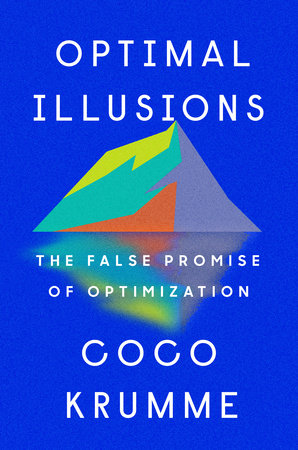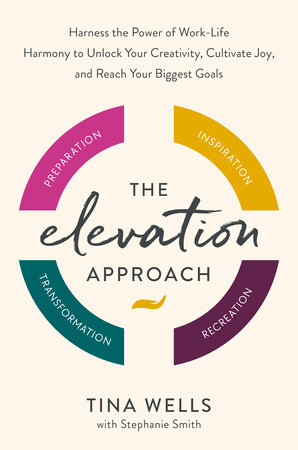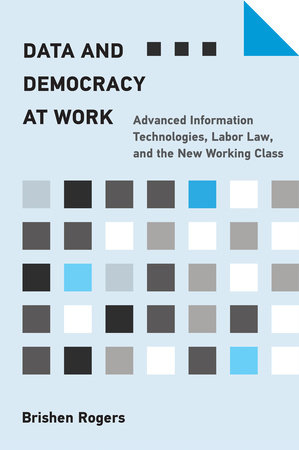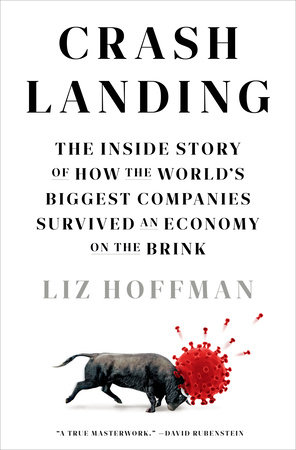Quick Summary
One Sentence Summary
“The Money Class” by Suze Orman offers practical financial advice, emphasizing the need for self-reliance and prudent financial planning in today’s economic landscape.
Big Idea
The central theme is financial self-reliance. Orman argues that the old rules of money don’t apply anymore, advocating for a new financial truth based on honesty, integrity, and personal responsibility.
Five Key Ideas
- Reassessing Retirement: Understanding the changing landscape of retirement savings and the importance of self-reliant funding.
- Home Ownership Realities: Debunking the myth of home ownership as an always-appreciating asset and giving guidelines on when and how to buy.
- Strategic Debt Management: Offering strategies for managing debt, emphasizing the need to differentiate between good and bad debt.
- The New Rules of Investing: Adjusting investment strategies to suit the current economic climate, focusing on long-term, diversified investments.
- Financial Honesty: Advocating for transparency in personal finance, including honest budgeting and spending within means.
Actionable Advice
- Create a Realistic Budget: Understand your income and expenses. Cut back on unnecessary spending.
- Emergency Fund: Prioritize building an emergency fund to cover at least six months of living expenses.
- Retirement Planning: No matter your age, start planning and saving for retirement now.
- Smart Home Buying: Only buy a home when you can afford it, not because it’s expected.
- Get Out of Debt: Focus on paying off high-interest debt and avoid accruing more.
About the Author
Suze Orman is a renowned financial advisor, author, and television host known for her straightforward and empathetic approach to personal finance. She has authored several best-selling books and hosted the award-winning “Suze Orman Show.”
Read Next
For further reading on personal finance and money management:
- “Rich Dad Poor Dad” by Robert Kiyosaki – Explores different perspectives on money and investing.
- “The Total Money Makeover” by Dave Ramsey – Offers a step-by-step plan for achieving financial fitness.
- “Your Money or Your Life” by Vicki Robin and Joe Dominguez – Focuses on transforming your relationship with money and achieving financial independence.
In Depth
Reassessing Retirement
In “The Money Class,” Suze Orman underscores the necessity of rethinking retirement planning. Gone are the days when one could rely solely on social security or company pensions for a comfortable retirement. Orman stresses the importance of being proactive and taking charge of your retirement savings.
The traditional model of retirement has shifted. People live longer, and the cost of living continues to rise. This new reality means that individuals need to save more and start earlier. Orman’s approach is not about instilling fear but fostering awareness. She insists on the need for a robust and adaptable retirement plan.
One detailed example from the book revolves around the concept of the “retirement number.” This number represents the amount of money you need to save to live comfortably in retirement. Orman highlights how many financial advisors give a generic figure, but she argues that this number is deeply personal. It depends on various factors like your lifestyle, health, and where you plan to live. Orman provides readers with tools to calculate their retirement number realistically.
In terms of investment for retirement, Orman cautions against high-risk options. Instead, she advocates for a diversified portfolio. She emphasizes long-term, steady growth over quick gains. It’s about consistency and patience. Orman also suggests that people should continue to learn and stay informed about their investments, making adjustments as needed.
One significant piece of advice from Orman is the importance of starting early. Even small amounts saved in your 20s or 30s can grow significantly due to compound interest. She says, > “Time is the most important ingredient in your retirement plan. The more time your money has to grow, the less you will need to save.”
Another critical aspect Orman discusses is the role of Social Security. She advises not to rely heavily on it, given its uncertain future. However, if you do factor it into your plans, Orman recommends delaying your benefits until you’re 70 if possible. This delay can result in significantly higher monthly payments.
Debt management also plays a crucial role in retirement planning. Orman advises that entering retirement debt-free, especially from mortgages, is ideal. This strategy can significantly reduce your financial burden and stretch your retirement savings.
In “The Money Class,” Orman delivers a wake-up call about retirement. The message is clear: take control of your financial future. With longer life expectancies and an unpredictable economic landscape, the need for a solid retirement plan has never been more critical. Orman’s guidance is not just about saving money; it’s about creating a sustainable and adaptable strategy that can weather the changes and challenges of the future.
Home Ownership Realities
Suze Orman in “The Money Class” challenges the conventional wisdom of home ownership. She argues that buying a house isn’t always the best investment. Instead, she urges readers to approach home buying with caution and pragmatism.
The myth that a home is always a great investment is debunked. Orman explains that homes don’t always appreciate in value, and when they do, it’s not guaranteed to outpace inflation. She points out that the real estate market can be unpredictable and subject to downturns.
Orman emphasizes affordability. She advises against stretching your finances for a dream house. An affordable home is one where mortgage payments, insurance, and maintenance don’t exceed 35% of your take-home pay. Overextending can lead to financial strain.
A detailed example from the book is the story of a young couple, eager to buy their first home. They were approved for a large mortgage but Orman cautioned them. Instead of maxing out their budget, she advised buying a less expensive home. This decision gave them financial flexibility. It allowed them to save, invest, and not live paycheck to paycheck.
Regarding mortgages, Orman is firm: > “A 30-year fixed-rate mortgage is the gold standard. It provides the security of knowing exactly what your mortgage payment will be for the life of the loan.” She warns against adjustable-rate mortgages, especially for those planning to stay long-term.
Down payments are crucial. Orman advocates for putting down at least 20%. This sizeable down payment avoids private mortgage insurance (PMI) and gives instant equity in the home.
Orman also discusses the emotional aspect of home buying. She warns against emotional decisions. Buying a home should be a financial decision, not just an emotional one. Don’t buy because of pressure or because it feels like the next life step.
The book also touches on when it’s better to rent. In some cases, renting can be more financially sensible. If you’re not sure about your long-term plans, or if home prices are overvalued, renting might be the way to go.
For those owning homes, Orman advises on mortgage payments. If you can, she recommends making additional payments towards the principal. This strategy can reduce the total interest paid and shorten the loan term.
In summary, Orman’s take on home ownership is a call for financial prudence. It’s not about forgoing the dream of owning a home. Instead, it’s about making smart, well-informed decisions. Buying a home should be a step towards financial stability, not a leap into uncertainty. Orman’s guidance helps navigate the complex world of real estate, ensuring that the dream of homeownership doesn’t turn into a financial nightmare.
Strategic Debt Management
In “The Money Class,” Suze Orman tackles the complex topic of debt management. She drives home the point that not all debt is bad, but managing it strategically is crucial.
Orman distinguishes between ‘good debt’ and ‘bad debt.’ Good debt is an investment that will grow in value or generate long-term income. Bad debt is anything that depreciates or has no potential to increase your wealth.
Credit card debt falls squarely into the bad debt category. Orman’s stance is firm: pay it off as quickly as possible. High-interest rates on credit cards can trap you in a cycle of debt. She emphasizes, > “The quicker you can get rid of your high-interest debts, the quicker you will achieve financial freedom.”
A detailed example from the book is about a woman named Laura. Laura had $15,000 in credit card debt with an interest rate of 18%. By only making minimum payments, it would take her over 30 years to clear the debt, paying more than double in interest. Orman’s advice was to prioritize this debt above all else. By cutting expenses and allocating more to debt repayment, Laura was able to clear her debt in three years, saving thousands in interest.
Student loans are considered ‘good debt’ by Orman. However, she advises caution. Taking on more student debt than you can reasonably expect to repay based on your future salary is a trap. Orman suggests exploring scholarships, grants, and community college to reduce costs.
Orman also discusses the impact of debt on credit scores. She explains that your credit score affects the interest rates you’re offered. A high score can save you thousands in interest over time. Her advice is to always pay on time and keep your credit utilization low.
Mortgages are another form of good debt, but Orman stresses the importance of affordable payments. She advises against using home equity lines of credit for unnecessary expenses. These should be reserved for home improvements or emergencies.
In the case of overwhelming debt, Orman discusses the options of debt consolidation and, as a last resort, bankruptcy. She emphasizes that these options have long-term consequences and should be carefully considered.
For those in debt, Orman’s advice is to create a repayment plan. List all your debts, their interest rates, and minimum payments. Prioritize them based on interest rate, paying off the highest ones first.
Budgeting is key. Orman advocates for a budget that accounts for debt repayment. Even small changes in spending can free up funds for debt reduction.
Orman’s approach to debt is realistic and empathetic. She understands that debt can be overwhelming, but her message is one of hope and action. By managing debt strategically, you can take control of your finances and pave the way to financial freedom. Her practical advice and real-world examples offer a roadmap out of debt and towards a more secure financial future.
The New Rules of Investing
Suze Orman’s “The Money Class” introduces readers to the new rules of investing, fitting for a changed economic landscape.
Orman’s first rule is clear: don’t chase quick profits. She warns against speculative investments. Stability and long-term growth are key.
Diversification is crucial. Orman advises spreading investments across different asset classes. This strategy reduces risk.
A detailed example in the book involves a couple, Mark and Linda. They invested heavily in tech stocks, enticed by rapid growth. When the tech bubble burst, they lost a significant portion of their savings. Orman’s advice was to rebalance their portfolio, adding bonds and international stocks for diversity.
Orman also stresses the importance of understanding your investments. She says, > “Never invest in something you don’t understand, no matter how tempting the potential returns.”
Retirement accounts are a focal point. Orman recommends maximizing contributions to 401(k)s and IRAs. These accounts offer tax advantages and often employer matching.
For those starting late, Orman advises catching up. If you’re over 50, take advantage of catch-up contributions to retirement accounts.
Orman cautions against emotional decisions. Don’t sell in a panic during market downturns. She advises a steady approach, riding out the volatility.
Risk tolerance is another key topic. Orman suggests assessing your comfort with risk. This assessment guides your investment choices.
Timing the market is discouraged. Orman recommends regular, consistent investments, a strategy known as dollar-cost averaging.
Investment fees are highlighted. Orman advises choosing low-cost index funds to minimize fees, which can eat into returns over time.
Her approach to investing is not just about making money. It’s about building a secure financial future, one thoughtful decision at a time. Orman’s advice is grounded in practicality, aiming to guide readers through the complexities of investing with confidence and clarity.
Living Below Your Means
In “The Money Class,” Suze Orman champions the concept of living below your means, not within them. This philosophy is essential for financial security and freedom.
Living below your means is about spending less than you earn. It’s not about deprivation, but about making smart choices. This approach allows you to save and invest for the future.
A compelling example from the book is about a family earning a substantial income but living paycheck to paycheck. They had a luxurious lifestyle but no savings. Orman’s advice was a budget overhaul. By cutting unnecessary expenses and downsizing their lifestyle, they were able to start saving significantly each month.
Orman emphasizes, > “True wealth is not about what you have, it’s about what you have saved and invested.”
Budgeting is a key tool. Orman encourages tracking expenses and setting realistic budgets. It’s about understanding where your money goes and making conscious choices.
Emergency funds are crucial. Orman advises saving at least eight months of living expenses. This fund acts as a safety net.
Avoiding debt is a major component. Living below your means means not relying on credit cards or loans for your lifestyle.
Saving for the future is a priority. Orman suggests automatic savings plans to ensure consistent saving.
Frugality is a virtue in Orman’s philosophy. It’s about finding value and not overspending on items that don’t bring lasting happiness or security.
Orman also touches on lifestyle inflation. As income increases, it’s tempting to increase spending. She advises against this. Instead, use extra income to boost savings and investments.
The concept of needs versus wants is explored. Orman suggests evaluating purchases to determine if they are truly necessary. This mindset helps prevent unnecessary spending.
For couples, Orman emphasizes the importance of being on the same page financially. Open communication about spending and saving is key to living below your means successfully.
Living below your means, according to Orman, is the foundation of financial security. It’s a mindset that enables long-term wealth building and financial peace of mind. By embracing this philosophy, individuals can create a stable and secure financial future, regardless of their income level.
Actionable Advice
- Evaluate Home Ownership: Buy a home only if it’s affordable. Mortgage, insurance, and maintenance should not exceed 35% of your take-home pay.
- Pay Off High-Interest Debt: Prioritize clearing credit card debt. High-interest rates can trap you in a debt cycle.
- Understand Good vs. Bad Debt: Good debt can grow in value. Bad debt depreciates. Manage them accordingly.
- Invest Wisely: Diversify your investments. Avoid chasing quick profits. Understand what you’re investing in.
- Maximize Retirement Contributions: Take full advantage of 401(k)s and IRAs, especially employer matching.
- Live Below Your Means: Spend less than you earn. Avoid lifestyle inflation as your income grows.
- Create an Emergency Fund: Aim to save at least eight months of living expenses for unexpected events.
- Use a Budget: Track your expenses. Set realistic budgets to control spending.
- Avoid Emotional Financial Decisions: Stay calm during market downturns. Don’t sell investments in a panic.
- Communicate About Finances: For couples, openly discuss spending and saving habits to ensure financial harmony.
About the Author
Suze Orman is an acclaimed financial advisor, author, and motivational speaker. Born in Chicago in 1951, she overcame financial struggles in her early life. Orman started as a waitress, then rose to become a financial advisor at Merrill Lynch. She founded the Suze Orman Financial Group in 1987. Her television show, “The Suze Orman Show,” aired from 2002 to 2015, cementing her as a financial guru. Orman has authored numerous best-selling books, including “The 9 Steps to Financial Freedom” and “Women & Money.” She advocates for financial literacy, believing everyone deserves to achieve financial independence. Orman emphasizes honesty, self-reliance, and prudent money management. She’s a strong proponent of living within one’s means and investing wisely for a secure future. Her straightforward, empathetic approach has garnered her a vast following, making her one of the most recognized voices in personal finance.
Read These Next
You might like these similar books
- “The Total Money Makeover” by Dave Ramsey
- “Rich Dad Poor Dad” by Robert T. Kiyosaki
- “Your Money or Your Life” by Vicki Robin and Joe Dominguez
- “I Will Teach You to Be Rich” by Ramit Sethi
- “The Automatic Millionaire” by David Bach
FAQ
Q: Who is the book “The Money Class” by Suze Orman for?
A: It’s for anyone seeking financial literacy, from beginners to those looking to refine their money management skills.
Q: Does the book offer advice on debt management?
A: Yes, it provides detailed strategies for managing and paying off debt, especially high-interest debts.
Q: Can “The Money Class” help with retirement planning?
A: Absolutely. Suze Orman offers guidance on retirement savings, including 401(k)s and IRAs.
Q: Is this book suitable for someone with a low income?
A: Yes, the book’s principles on living below your means and saving are applicable regardless of income level.
Q: Does the book discuss investment strategies?
A: Yes, it covers various investment strategies, focusing on long-term growth and diversification.
Q: Are there any tips for couples in managing finances?
A: Definitely. Orman emphasizes the importance of communication and joint financial planning for couples.
Q: Does Suze Orman offer advice for handling financial emergencies?
A: Yes, she stresses the importance of creating an emergency fund as part of financial planning.







